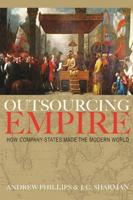Publisher's Synopsis
In 1930, almost 13,000 African Americans worked in the coal mines around Birmingham, Alabama. They made up 53 percent of the mining workforce and some 60 percent of their union's local membership. At the close of the twentieth century, only about 15 percent of Birmingham's miners were black, and the entire mining workforce had been sharply reduced. Robert H. Woodrum offers a challenging interpretation of why this dramatic decline occurred and why it happened during an era of strong union presence in the Alabama coalfields. Drawing on union, company, and government records as well as interviews with coal miners, Woodrum examines the complex connections between racial ideology and technological and economic change. Extending the chronological scope of previous studies of race, work, and unionization in the Birmingham coalfields, Woodrum covers the New Deal, World War II, the postwar era, the 1970s expansion of coalfield employment, and contemporary trends toward globalization. The United Mine Workers of America's efforts to bridge the color line in places like Birmingham should not be underestimated, says Woodrum. Facing pressure from the wider world of segregationist Alabama, however, union leadership ultimately backed off the UMWA's historic commitment to the rights of its black members. Woodrum discusses the role of state UMWA president William Mitch in this process and describes Birmingham's unique economic circumstances as an essentially Rust Belt city within the burgeoning Sun Belt South. This is a nuanced exploration of how, despite their central role in bringing the UMWA back to Alabama in the early 1930s, black miners remained vulnerable to the economic and technological changes that transformed the coal industry after World War II.












